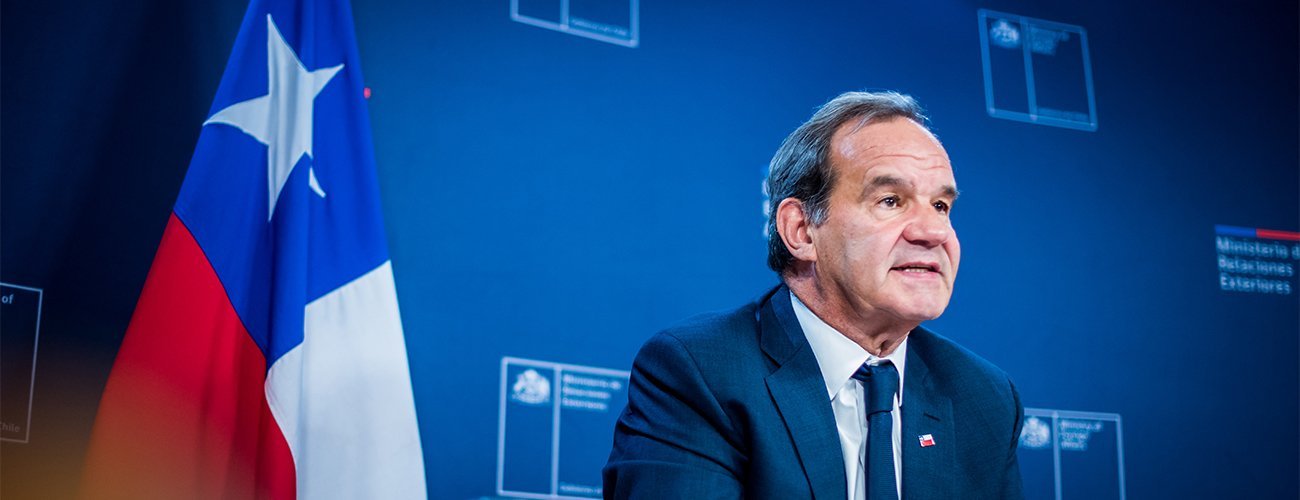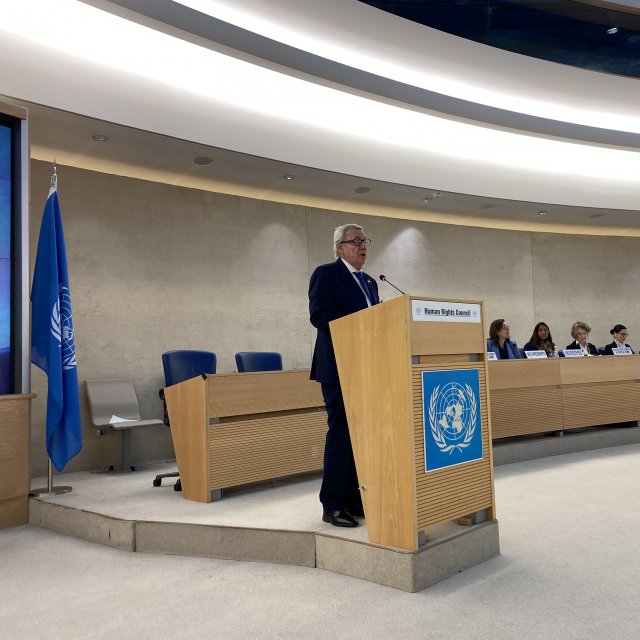 Thursday, February 27th 2025
Undersecretary meets with the Minister of Oceans and Fisheries of the Republic of Korea
Thursday, February 27th 2025
Undersecretary meets with the Minister of Oceans and Fisheries of the Republic of Korea
Foreign Minister Allamand: "Antarctica is, by principle, a continent destined for peace and science"

Continue making progress in protecting Antarctica and fighting climate change. These were the main ideas left during his presentations by the Minister of Foreign Affairs, Andrés Allamand, in the framework of the celebrations for the 30th Anniversary of the signing of the Protocol to the Antarctic Treaty on Environmental Protection.
In a first intervention - at the dialogue table on research and technological innovation - the Minister stressed that, within the framework of this treaty, "Antarctica is, by fundamental principle, a continent consigned to peace and science."
In addition, the Secretary of State highlighted the progress that Chile has made in terms of scientific research worldwide, such as the creation of the "Global Observatory on Climate Change" which, through a network of parametric sensors that will go from the Unión Glacier, located 1,000 kilometers from the South Pole to the extreme north of Chile on the border with Peru, it will allow the collection of data associated with the matter that will be available to the entire scientific community.
Later, during the Ministerial Dialogue on the Future of the Protection of the Antarctic Project, Minister Allamand thanked the Government of Spain and the Minister of Ecological Transition and the Demographic Challenge, Teresa Ribera, for the instance and stressed that the Madrid Protocol "has been key in the construction and strengthening of the Antarctic Treaty System", emphasizing the role of Chile in the realization of this mechanism, which was discussed and negotiated during the presidency of our country in the Special Consultative Meeting of the Antarctic Treaty of Viña del Sea in 1990.
The Foreign Minister also highlighted Chile's work in the implementation of the Madrid Protocol by adopting a new Antarctic law, the "Chilean Antarctic Statute", as a legal norm to complement our country's efforts to protect Antarctica and emphasized the commitments to be adopted in the future with respect to the white continent.
"We must reaffirm our determination to intensify our efforts to ensure that Antarctica remains the last pristine area on our planet," he concluded.
Related articles
 Thursday, February 27th 2025
Undersecretary meets with the Minister of Oceans and Fisheries of the Republic of Korea
Thursday, February 27th 2025
Undersecretary meets with the Minister of Oceans and Fisheries of the Republic of Korea
 Monday, February 24th 2025
Minister van Klaveren reaffirms Chile's commitment to human rights and gender equality
Monday, February 24th 2025
Minister van Klaveren reaffirms Chile's commitment to human rights and gender equality









